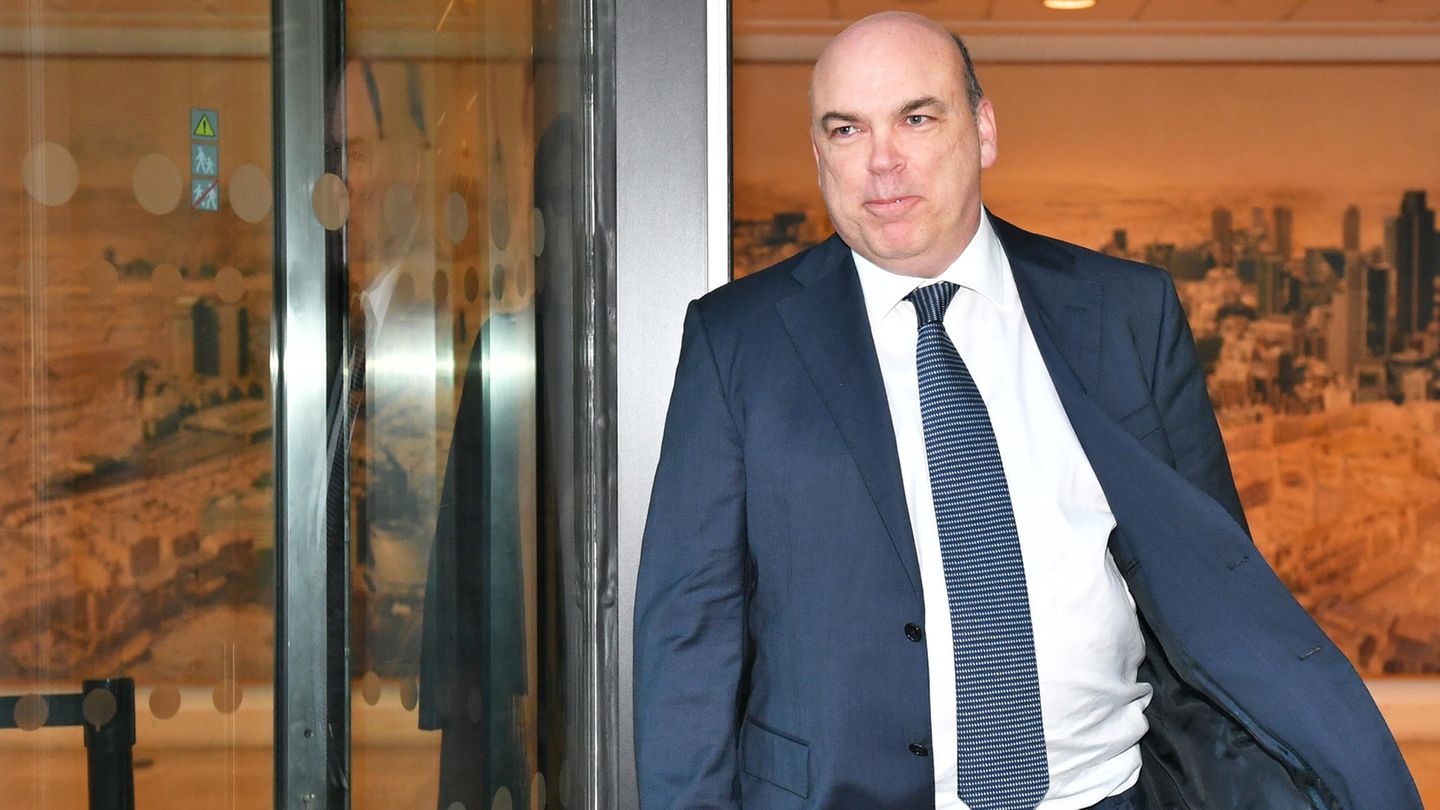A billion-dollar deal with HP catapulted technology entrepreneur Mike Lynch onto the international stage. He was later sued for it. In his private life, the billionaire has some very special hobbies
British tech billionaire Michael Mike Lynch has been missing since a boating accident off the coast of Sicily. His 56-meter-long luxury yacht “Bayesian” capsized in the early hours of Monday morning. Strong winds caused the sailing ship to sink near the port of Porticello near Palermo at around 5 a.m.

This is original content from the Capital brand. This article will be available for ten days on stern.de. After that, you will find it exclusively on capital.de. Capital, like the star to RTL Germany.
A total of 22 people were on board, including twelve passengers and ten crew members. According to media reports, most of the passengers were members of the entrepreneur’s family and circle of friends. The coast guard and fire department were able to rescue 15 people and bring them to shore, including Lynch’s wife, Angela Bacares, according to the Financial Times. The ship’s chef was recovered dead.
Since then, divers have been searching for the six missing people, including Lynch’s 18-year-old daughter and, according to the Reuters news agency, Morgan Stanley CEO Jonathan Bloomer. Also missing is lawyer Chris Morvillo, who represented Lynch in a long-running lawsuit in the USA. The outsider entrepreneur celebrated his victory on his yacht, writes the “”. Just a few weeks ago, Lynch was acquitted in a fraud trial in the USA.
Software company Autonomy sold to HP
The missing tech tycoon Lynch is referred to by tabloid media in his home country as the “British Bill Gates”. He was long considered one of the country’s most successful entrepreneurs. The 59-year-old is co-founder of the software company Autonomy, which was sold to the US company Hewlett Packard (HP) in 2011 for 11 billion US dollars (currently 9.94 billion euros). At the time, this was the largest deal that a European IT company had made up to that point.

The Financial Times describes Lynch as an entrepreneur who experienced extreme career highs and lows. After the sale of Autonomy to HP, Lynch was knighted as one of the few bosses who made it from the island to the global stage. The self-made software success story has also made Lynch a prominent investor in the British start-up scene and a vocal advocate of this scene. Lynch was an external director of the BBC and a member of the Science and Technology Council under former Prime Minister David Cameron, where he also advised on the importance of artificial intelligence. In 2006, he was even awarded the Order of the British Empire for his services to entrepreneurship.
Mike Lynch’s co-defendant died just two days ago
But just one year after the deal with HP, in 2012, the US company claimed that Lynch and other Autonomy executives had inflated the company’s value by $5 billion before the sale. Lynch and other co-defendants fought against HP in court for 12 years. Lynch was extradited to the US and spent a year under house arrest in San Francisco. In June, a jury acquitted Lynch and his co-defendant Stephen Chamberlain of all charges. Chamberlain, formerly vice president of finance at Autonomy, died two days ago in the UK after a jogging accident when he was hit by a car.
Lynch was born in Ireland in 1965 and grew up in a down-to-earth environment. His mother worked as a nurse and his father as a fireman. He later studied physics, mathematics and biochemistry at the prestigious Cambridge University. He earned his doctorate in mathematical data processing. During his questioning at the trial this year, he said that as the son of Irish parents, he was something of an outsider in Britain. During the political turmoil of the 1970s in particular, there were times “when you had to learn to run fast,” the Financial Times quoted him as saying.
First company founded during PhD and with credit
Lynch founded his first company while he was still doing his PhD in the 1980s. According to the Guardian, he used a loan of £2,000 that the manager of a music band gave him. Lynch was already a music fan at that time. The company Lynett Systems Ltd then manufactured audio products for the record industry. In 1991 he co-founded Cambridge Neurodynamics, which specialized in computer-aided fingerprint recognition.
The software company Autonomy was finally launched in 1996. It was spun off from Cambridge Neurodynamics with the help of the private equity group Apax. From then on, Lynch and his business partners David Tabizel and Richard Gaunt offered other companies software with which they could, roughly speaking, organize and use the mass of digital data that was emerging at the time.
Fan of cattle and model railways
In 2022, HP won a civil fraud lawsuit against Lynch in the UK. In the most recent fraud trial in the US, however, prosecutors failed to convict Lynch, then CEO of Autonomy, of alleged fraud. that he wanted to support people who were wrongfully convicted of crimes. “The system can sweep away individuals,” he told the newspaper. “There has to be a counter-option that says, ‘Okay, the whole world thinks you’re guilty, but was that really a fair conviction?'”
Not much is known about Lynch’s private life. He has two daughters with his wife. According to the Guardian, he once said that he liked watching sheepdog trials and that he had a passion for preserving rare animal breeds. He is said to keep a herd of red-haired Red Poll cattle on his estate in the south-east of England. He is also said to have one.
Source: Stern




